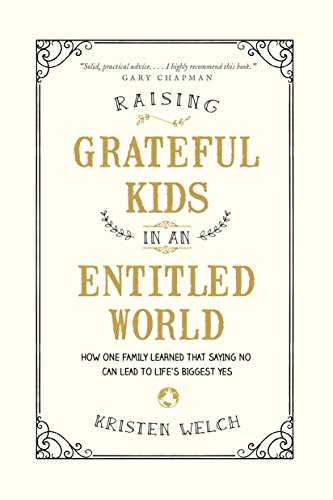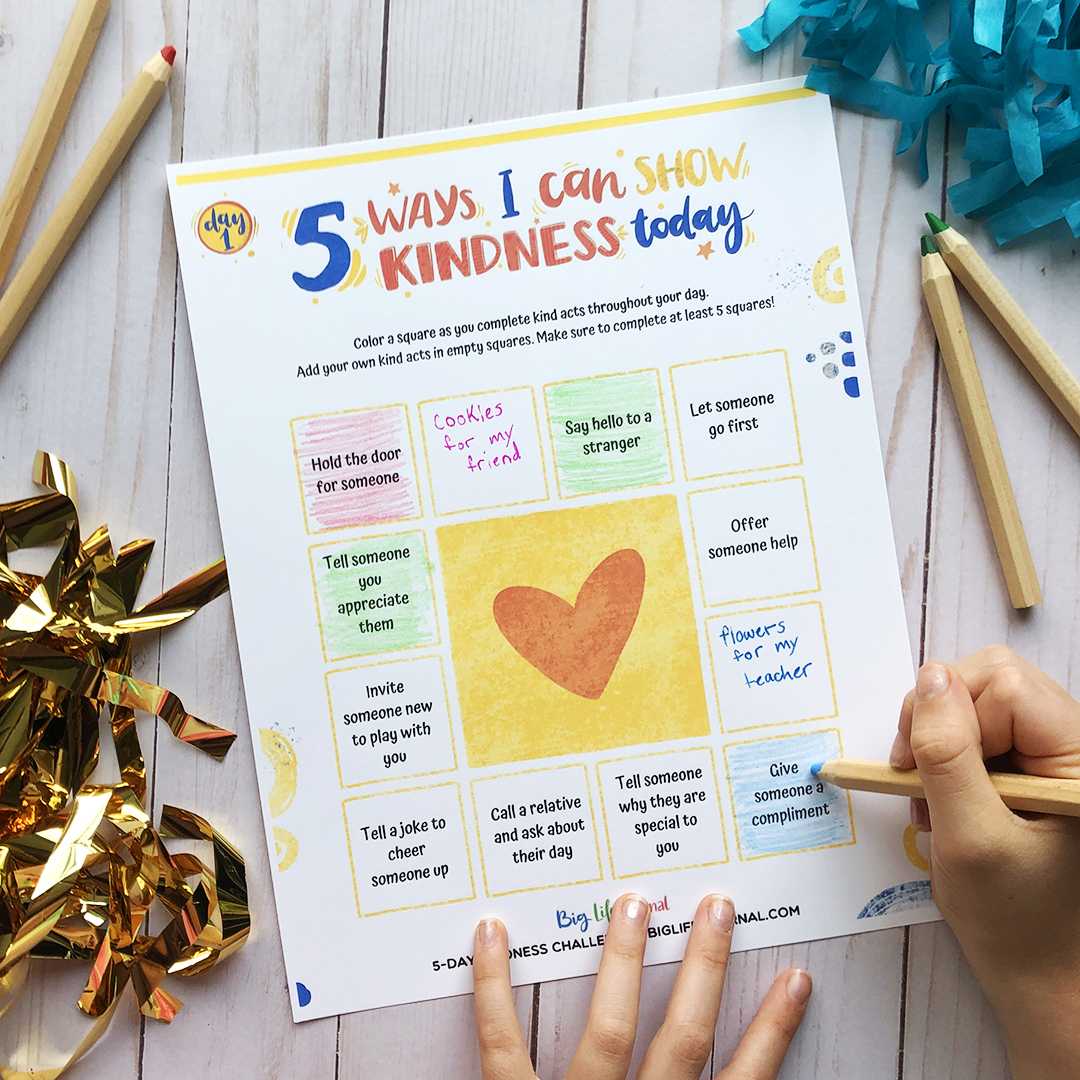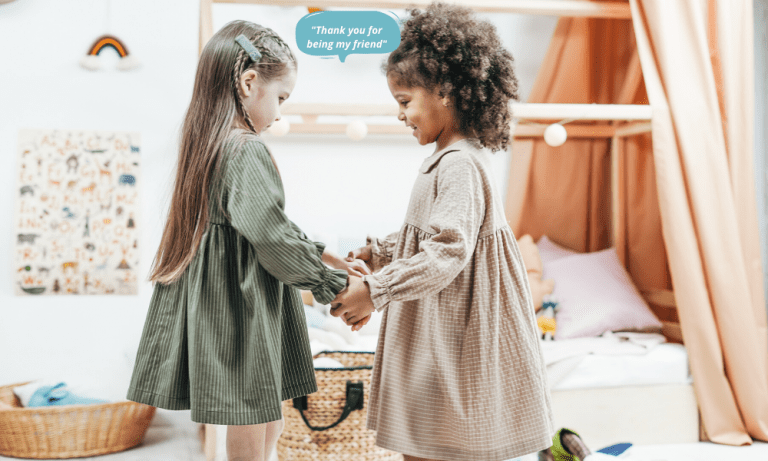Raising grateful children is a huge “feat” and it’s not as easy as it sounds but I am going to give you some helpful tips (backed by research) on how to raise a grateful child.
While you may be thinking that teaching your 2-year-old to say ‘thank you’ after anything given to them, may instil a grateful disposition in them, it’s usually not that plain simple. Because you can indirectly be doing so many other things that could easily distract them and often leave them confused and directionless.
The overlooked act of always complaining about the traffic, churning out complaints after complaints about the state of your house, or your neighbours, or your husband, could send a poor signal to your child and implant characteristics that are undesirable.
What is “Gratitude”?
According to KidsHealth, gratitude is one of many positive emotions. It’s about focusing on what’s good in our lives and being thankful for the things we have.
Us including our children take many things for granted, we often think it is normal to have food, clothing and education as basic necessities in life. But that is not the case, there are millions of families that are deprived of these basic things in life.
Why Gratitude Is Important
There have been numerous studies related to gratitude focused on adults and kids alike with results being similar. In one study by Sarah Algoe PhD (1) explains that gratitude is the “glue” that can bring people together and that can create happiness from the inside out.
Benefits of Grateful Children
Grateful kids are usually calm and composed and they are able to appreciate even the small things that their parents do for them. You can easily ignite joy and light up the mood of a grateful child by merely giving them a coloured pen.
Grateful kids are less demanding and they are able to take joy in the little things that they have. They are naturally soft-hearted and they have a giving spirit. Research points to the following as benefits (in summary):
- Build better relationships
- Positive emotions balance out negative emotions
- Ability to cope with stress & reduce depression
- Better and good quality sleep
- Higher levels of happiness and optimism
- Lesser aggression
- Improved self-esteem and resilience
Problems with Ungrateful Children
Now, since you know the benefits of grateful or appreciative children, the opposite is true with ungrateful kids. Such kids are tensed up and aggressive. This leads to not being able to have good relationships in school and outside – be it with other kids or even family.
Ungrateful children are also seldom happy with what they have or achieve. However, the good news is that children can be taught.
Can You Teach Your Child to be Appreciative?
Yes absolutely, however, it can be quite tricky. Kids (at that stage) naturally are self-centred. Barbara Lewis author of What Do You Stand For? For Kids says that babies as young as 15-18 months can begin to understand basic concepts that lead to gratitude. As an example, they learn they are dependent on their parents for food and play. At the ages of 2 or 3 years, children can talk about being thankful for things such as toys, pets and even people. By the age of 4 years, children can understand being thankful for acts of kindness such as care, love and affection.
Kristen Welch, authored a somewhat controversial book titled Raising Grateful Kids in an Entitled World.
In 2010, Kristen travelled to Africa on a blogging trip to write about poverty in a huge slum. That experience turned her world upside down, and as a result, she and her family founded a non-profit called Mercy House Global (http://mercyhouseglobal.org). It’s an interesting to read for many parents.

Help Your Child Understand Gratitude
Children learn a lot from their parents, and what is practised at home. Good manners and kind words matter a lot. Here are some great tips to instill thankfulness and gratitude.

7 Helpful Tips to Raise a Grateful Child
Lead by example
Kids learn more by example rather than instruction. Kids interpret instruction rather poorly but are super fast in imitating.
In order to be raising grateful children, you have to learn to be grateful and not entitled, for the things that you have in your life as a parent and mean it. You have to stop complaining about your salary, about the traffic, about your spouse, about your parents, about your friends, about the look of your house.
You have to learn how to take control of your temper especially when your child is watching you. Don’t be of the habit of yelling gibberish and unwinding intense frustration with everything and anything around you.
Your child is watching you, and they are learning to be fussy and complaining like ‘you’ and they can never be grateful with anything or everything that you give them.
Build a life around simple appreciation
In order to raise grateful kids, you can start by building your life and your home around simple appreciation for even the little things that don’t matter.
Always tell your kids thank you, give them a warm hug, a loving remark for everything they do or ask lovingly or otherwise, even when they do not anticipate it.
When they give you a kiss, tell them “thank you”.
When they are holding your hands, tell them thank you.
When they say mummy walk me to bed, still tell them ‘thank you, for the honour!’
No matter how tired you look, no matter how angry you might be inside of you, try as much as possible to always freely show appreciation to your children.
Being calm and appreciative towards your children is the best way to raise them by example.
Don’t give your child everything they ask
It is not a good idea to raise a child with too much entitlement, or the habit of giving them everything they want.
This mistake can easily sway them and teach them how to be ungrateful.
You should strive hard to provide your kid’s needs and not their wants. Provide their needs according to their age, so that they remain grateful.
You should not be buying a car for a 15-year-old, because when they are finally 18, the idea of a car will no longer thrill them, they will want something bigger and more expensive.
Teach them the value of hard work
In order to raise a grateful child, you have to teach them the benefit and value of hard work.
A child should not be left to grow up without experiencing chores or understanding the value of work.
As they say, ‘experience is the best teacher’
When you engage your children with house chores from a very minor age, you are indirectly teaching them how to grow up to be responsible, take ownership and be grateful with the results.
Always tell your children how hard you work for them, how the food they are eating comfortably gets to the table, how other people and less privileged don’t have what they enjoy freely.
At a certain stage in their lives, don’t just hand over everything they ask, let them earn it by their own hard work.
Allow them to befriend the less privileged children
Everyone gets caught up with wanting to achieve so many things, that we forget to appreciate whatever we have already- the same thing happens to our kids.
The less they understand of the underprivileged, the deeper they sink into their ungrateful stance.
Do not be one of those parents who raised their children to mingle by class, no parents have ever had success treading that footpath
Allow your children to see the sufferings and the constant frustration from poverty that the less privileged children suffer, so that they are able to appreciate and value whatever they have in their lives.
Practice a daily gratitude routine
The easiest way to incorporate a grateful routine to our children, is by making them say one or two prayer words every day, thanking God for what they have.
You can make them say ‘thank you God for giving my parents the money to be able to afford this for me’,
‘thank you God for giving my parents, the ability to give me a comfortable life’,
‘Please God give some part of what I have to the less privileged and take away pains and sorrows of poverty from other people’s lives’
When you teach your child how to be concerned for other people, how to feel pains for the frustrations and poverty of other people around them, they learn to not just be kind, but to appreciate every single thing that they have in their lives.
Daily use of positive affirmations are another great routine to practise. Affirmations are useful in many ways to help your child lead a happy life.
Encourage your kids to participate in charity
One of the best ways to teach gratefulness to your children, is by having them participate in charity in your area.
You can have them give out their old toys or clothes to orphans and street kids.
Also take them to visit places that will touch their conscience and tone down their wants, like the orphanage homes, the prison yard and kids correctional facilities.
You can also grab a copy of our very own Self-Esteem and Confidence Journal for kids and complete a few pages each day.
These are 7 practical and helpful tips that will help you raise grateful and kind children.
If you love this post, do share with a loved one!
Teach kids to show empathy and kindness by using the Kindness & Community Kit. It is a collection of printable worksheets, activities, posters, book and movie lists, and coloring sheets for children.

References:
(1) Sarah B. Algoe, Find, Remind, and Bind: The Functions of Gratitude in Everyday Relationships, link here: http://cds.web.unc.edu/files/2015/03/Algoe_2012_find-remind-bind.pdf




Comments are closed.